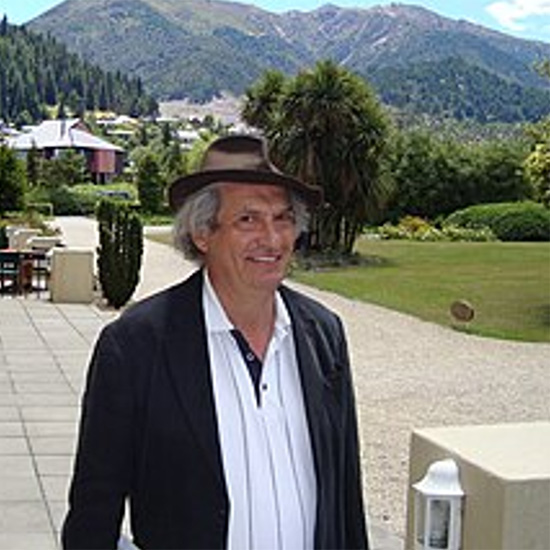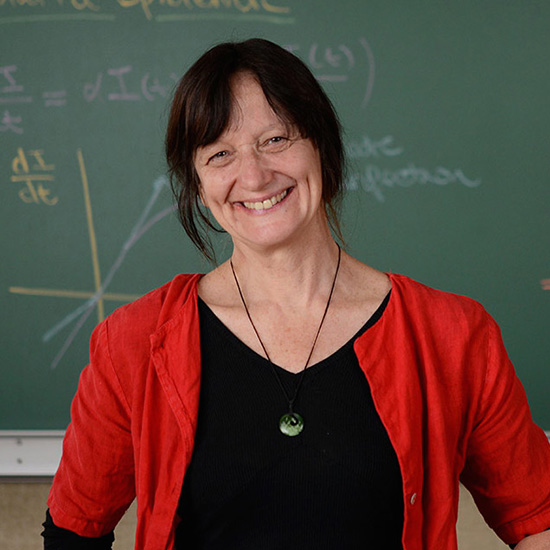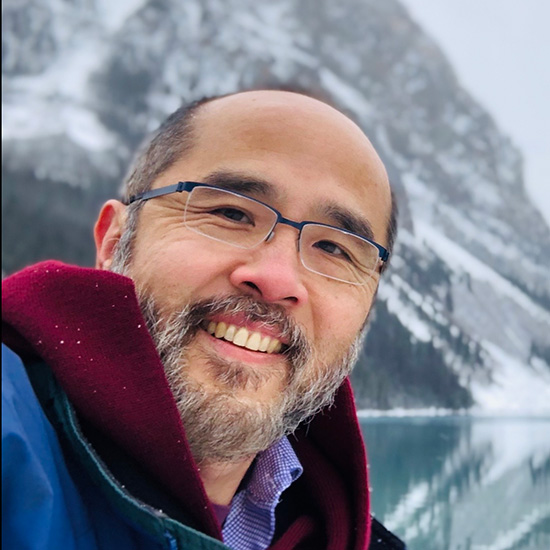Persi Diaconis - Stanford University

Persi Diaconis is a Professor of Statistics and Mathematics at Stanford University. He is also a former professional magician. He earned his PhD from Harvard in 1974 and received a MacArthur Fellowship in 1982. Along with David Bayer, he proved the result that it takes 7 shuffles to randomize a deck of cards. He was hired by several casinos to analyze card shuffling machines (result - not great - the machines needed to be scrapped or redesigned).
Currently, Professor Diaconis works in probability, combinatorics, and group theory with a focus on applications to statistics and scientific computing. A specialty is rates of convergence of Markov chains. He is trying “to say something useful to practitioners in large real-world simulations.â€
His book Magical Mathematics (with co-author Ron Graham - Princeton University Press 2012) won the 2013 Euler Book Prize.
Lecture: The Mathematics of Solitaire
Millions of people play solitaire (usual Klondike) every day. It's one of the embarrassments of my field that we don't know the odds of winning. In Vegas, you can buy a deck for $52 and get $5 for each card you get up on the ace piles. Is this anything like a fair game? People say 'can't the computer tell you?' Nope, even fancy programs like alpha zero can't do it! I'll say what's known and introduce 'simple solitaire' ;a playable version where we can do the math. The math turns out to be interesting (random matrix theory and the zeros of the zeta function,...). I have every hope that if we can ever do the math of real solitaire, that will lead to interesting new math too.
Ken Golden - University of Utah

Ken Golden is a Distinguished Professor of Mathematics at the University of Utah. His research focuses on sea ice, climate, polar ecology, and composite materials. He's been on eighteen polar expeditions, given over 500 invited lectures on six continents, including three presentations to the U.S. Congress, and won awards for teaching, mentoring, and science communication. His work has been covered by media around the world, including profiles in Science, Scientific American, and the BBC. Golden is an Inaugural Fellow of the AMS, a Fellow of the Electromagnetics Academy, a SIAM Fellow, cited for “extraordinary interdisciplinary work on the mathematics of sea ice,†and a Fellow of the Explorers Club, whose members have included Neil Armstrong and Jane Goodall.
Lecture: Modeling sea ice and its ecosystems in a warming climate
The Arctic and Antarctic sea ice covers form key components of Earth's climate system. Their precipitous declines are impacting the polar marine environment and its ecosystems, with ripple effects felt far beyond the polar regions. As a material sea ice exhibits composite structure on many length scales. A principal challenge is how to use information on small scale structure to find the effective or homogenized properties on larger scales relevant to climate and ecological models. Also of interest are inverse problems of recovering parameters controlling small scale processes from large scale, bulk observations. From tiny brine inclusions to rich ice pack dynamics on oceanic scales, and from microbes to polar bears, we'll tour recent advances in modeling sea ice and the ecosystems it hosts. We'll encounter areas of broad mathematical interest, including percolation theory, fractal geometry, spectral analysis and random matrix theory, advection diffusion processes, machine learning for PDE, Morse theory, persistent homology, and uncertainty quantification for dynamical systems. The talk will conclude with an exciting video of an Antarctic expedition.
Ami Radunskaya - Pomona College

Professor Ami Radunskaya , A California native, received her Ph.D. in Mathematics from Stanford University. She has been a faculty member in the Math Department at Pomona College since 1994. In her research, she specializes in ergodic theory, dynamical systems, and applications to various "real-world" problems. Some current research projects involve mathematical models of cancer immunotherapy, developing strategies for targeted drug delivery to the brain, and studying stochastic perturbations of dynamical systems. Professor Radunskaya believes strongly in the power of collaboration and that everyone can learn to enjoy mathematics; as President of the Association of Women in Mathematics, she encouraged collaborative research, international outreach and cooperation between all the mathematical societies. She is the President of the EDGE (Enhancing Diversity in Graduate Education) Foundation, whose summer program won a "Mathematics Program that Makes a Difference" award from the American Mathematics Society in 2007, and a Presidential Award for Excellence in Science, Mathematics and Engineering Mentoring (PAESMEM) in 2017.
Professor Radunskaya is a 2021 Fellow of the Association for Women in Mathematics, a Fellow of the American Math Society, and she is the recipient of several awards, including a WIG teaching award in 2012, the 2017 AAAS Mentor award, and the 2020 Intercollegiate Biomathematics Alliance Distinguished Senior Fellowship. She was featured in the documentary, "The Empowerment Project: ordinary women doing extraordinary things", as well as in the 2020 book: "Power in Numbers: the Rebel Women of Mathematics".
Lecture: DCs, Doses and Drugs: how mathematicians fight cancer
In this talk I will trace a trajectory of mathematical models used to understand the development of cancer and to inform cancer treatments. While there were nearly two million new cases of cancer in the United States in 2022, the risk of dying from cancer is dropping each year. Some of these improvements in outcomes can be attributed to the work of mathematicians: nearly every major cancer center in the US employs a group of mathematical oncologists. What do these mathematicians work on and what is the impact of their work? The answer is that they work on everything from cancer detection to treatment designs, to drug delivery. For today's talk, I will focus on how mathematical models can help us understand how our own immune systems can be harnessed to fight the spread of cancer. The main questions we will try to answer about these treatments are: "When?", "Where?" and "How Much?"
The mathematical tools used include systems of differential equations, heuristic optimization, hybrid cellular automata and network complexity. This story highlights the power of flexibility and collaboration, and illustrates how current mysteries and available data can drive the modeling process.
This talk is intended for a general math audience: no knowledge of biology is assumed or required!
Francis Su - Harvey Mudd College

Francis Su is the Benediktsson-Karwa Professor of Mathematics at Harvey Mudd College and a former president of the Mathematical Association of America. In 2013, he received the Haimo Award, a nationwide teaching prize for college math faculty, and in 2018 he won the Halmos-Ford writing award. His research is in geometric combinatorics and applications to the social sciences. His work has been featured in Quanta Magazine, Wired, and the New York Times. His book Mathematics for Human Flourishing (2020), winner of the 2021 Euler Book Prize, offers an inclusive vision of what math is, who it's for, and why anyone should learn it.
Lecture: Sperner's Lemma: Old and New
Sperner's Lemma is perhaps best known as a combinatorial equivalent of the Brouwer fixed point theorem. In this talk, I'll survey old and new proofs of Sperner's lemma, and old and new applications, such as computing Nash equilibria and solving fair division problems. We'll also discuss some surprising recent generalizations of Sperner's lemma, including a multi-labeled version that yields a "Survivor"-style cake-cutting theorem: you can divide a cake today so that no matter who gets voted off the island tonight, there's a fair allocation.